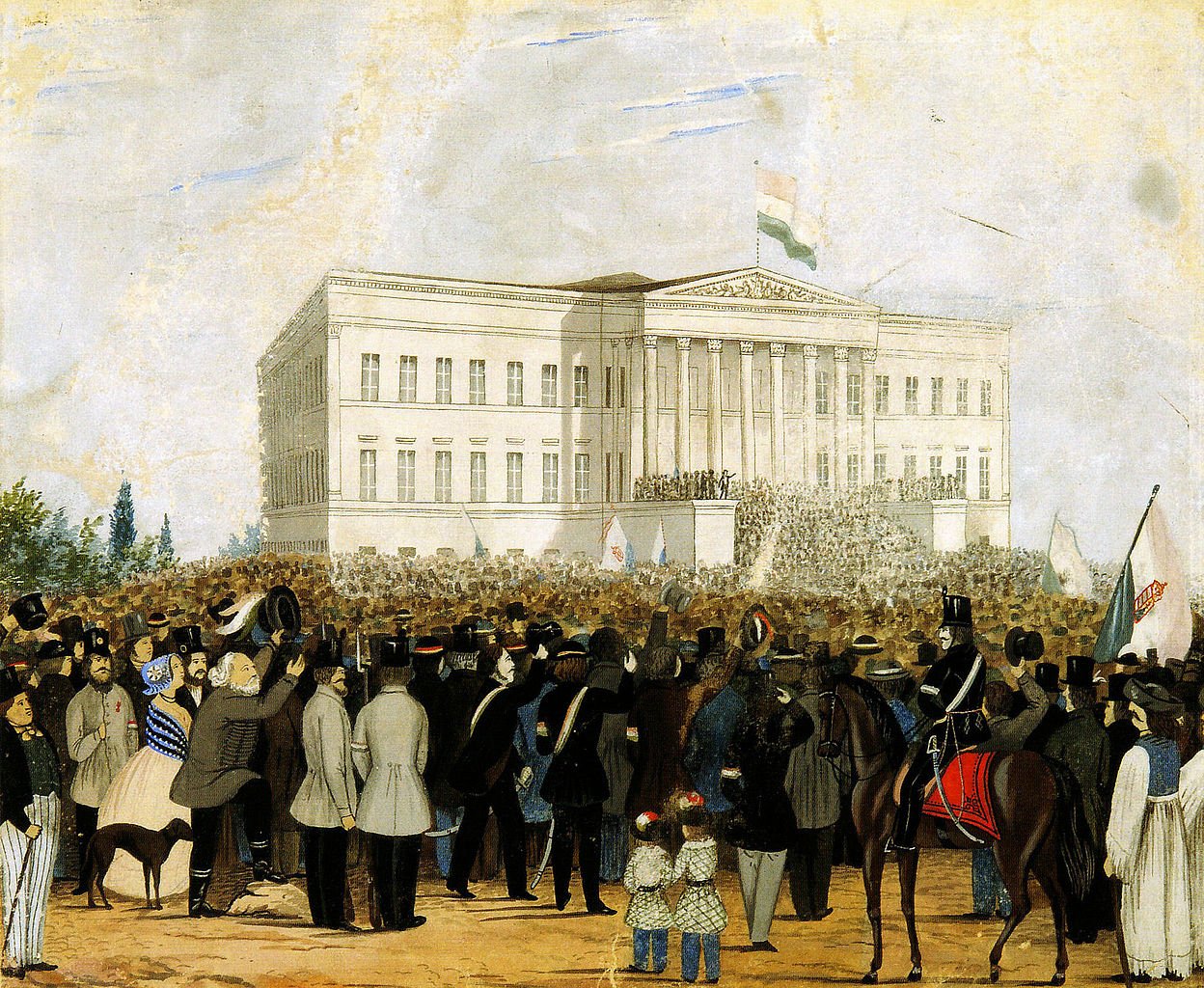March 15, national holiday in Hungary: brief overview and practical info
March 15 is one of the three national holidays in Hungary and commemorates the Revolution of 1848, and the following War of Independence. Although the revolution failed, it was one of the most significant events in Hungary's modern history. For Hungarians, this day is a symbol of democracy and national independence.
The outbreak of the Revolution on March 15, 1848
In the spring of 1848, Europe experienced a revolution wave, and it reached Hungary too, where people wanted to break away from the rule of the Austrian Empire. In Pest, Hungarian poets and writers were gathering at their regular meeting place, the Café Pilvax, preparing for a demonstration on March 19. After hearing the news of the revolution in Vienna on the evening of March 14, they decided to act immediately.
The revolutionaries started to gather people while reciting the National Song written by the poet Sándor Petőfi, and their demands were worded in 12 points. The demands included freedom of the press, an independent Hungarian government, as well as civil and religious equality before the law, amongst others.
The mass, led by Petőfi himself, occupied a press and printed the poem and the 12 points. Despite the rain, an even bigger crowd gathered in the garden of the National Museum by afternoon. The Habsburgs didn’t intervene.
The 1848-49 War of Independence
Following the events on March 15, a Hungarian delegation went to Vienna. After several discussions, the Habsburgs accepted an independent Hungarian ministry led by Count Lajos Batthyány. However, in the summer of 1848, Vienna decided to take action against the Hungarian revolution, and the Austrian army attacked and invaded Hungary.
The Austrian army suffered serious defeats in the war and the young emperor, Franz Joseph I, had to call for help. He convinced Tsar Nicholas I, Emperor of Russia, to provide support for breaking down the Hungarian War of Independence. Hungary was defeated and surrendered to the Russian Tsar in August 1849.
Following the defeat, thirteen Hungarian generals were executed in the town of Arad (now in Romania) on October 6, 1849. Prime Minister Batthyány was executed the same day in Pest, and thousands were sentenced to death or prison. The Habsburgs built the Citadella, a fortress on the top of Gellért Hill in Buda, at that time with cannons directed at the town below.
Practical information about March 15 in Hungary
On March 15 there are celebrations all over the country, with official commemorations and family programs. Commemorations often include - in schools, it's a regular program - performances replaying the major events of the revolution. People also wear red-white-green cockades pinned to their clothes.
As with all national holidays in Hungary, shops, markets, and almost all services are closed on March 15. Restaurants and cafés tend to be open on this day, but there are exceptions - it's better to double-check if your chosen place will be open or not.
Public transport services operate less frequently, according to Sunday/Holiday schedule.
If March 15 falls on a Tuesday/Thursday, then the Monday/Friday that week will be an extra holiday, resulting in a 4-day weekend. Some shops and services will be closed on the extra holiday too. In case of a 4-day weekend, one Saturday - usually in the same month - will be an extra workday.
If March 15 makes for a 3 or 4 day holiday, this will be the first weekend of the year with a lot of people traveling in Hungary. Depending on the weather, be prepared for large numbers of domestic tourists at recreational sites, like zoos and national parks. Smaller accommodation providers can be fully booked.
Featured image: Petőfi reciting the National Song on the steps of the National Museum. Artist unknown. Through Wikimedia Commons.
